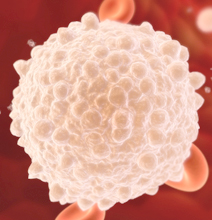An example: trastuzumab (Herceptin®)
Trastuzumab (commercial name Herceptin®) is probably the best studied targeted breast cancer therapy.
Trastuzumab is a monoclonal antibody specific for (anti) HER2.
HER2 - short for “human epidermal growth factor receptor 2”, is a marker for a type of breast cancers - for more information see .
Once activated by molecules present in the blood or tissues, HER2 stimulates cellular growth and multiplication.
Breast tumors with overexpression of HER2 (called HER2 positives or HER+ breast cancers) tend to be very aggressive because their cells are over-stimulated to divide. They are also at high risk of recurrence (when the cancer comes back after being treated) and have low survival rates.
About 15-20% of all breast cancers are HER2+, which is suitable for treatment with trastuzumab.
Trastuzumab was initially approved for the treatments of metastatic cancer – cancer that had already spread–, but is now also used to treat, together with chemotherapy, women with primary HER2+ breast cancers .
Trastuzumab acts by blocking it HER2 from interacting with other molecules and inhibiting cancer proliferation/growth.
Because it is an antibody it can also activate the immune system, further contributing to the destruction of the tumor cells.





